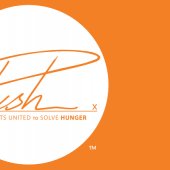Let’s talk about some of the challenges of opening data. 1) Too expensive! 2) We don’t have the technical knowledge! 3) We don’t have the storage space! 4) We don’t have the time!
GODAN works with many organizations in all sectors facing these challenges, but there’s one challenge that comes up specifically in academia. 5) It’s just not how things are done.
So many elements surround the opening of data. You can have all the technical know-how, the high quality data, the funding and the resources, but when it comes to academia, the peer-review publication process, backed up by the competitive nature of certain disciplines, data sharing is out of the question. It’s difficult to undo thousands of years of the scientific process to integrate open data by design into research methods.
GODAN explores all aspects of open data in agriculture and nutrition, specifically from sectoral approaches and has released two papers on open data and open access in academia. The first report, Donor Open Data Policy and Practice, discussed donor open data policies and the capacity of grantees to comply. The second, newly launched, report was carried out by the Presidents United to Solve Hunger (PUSH) Initiative at Auburn University on Open Data and Open Access at Universities.
PUSH interviewed personnel from nine universities on attitudes towards open access, open data, and the policies and practice that either support or hinder data sharing.
From the PUSH report, the two main drivers for United States universities to release data are 1) funder’s requirements and 2) The White House Office of Science and Technology Policy (OSTP) executive order and memo of 2013. Interviewees understood that open data provides a public good (especially by research projects that are publically funded), has the ability to accelerate research and innovation, and holds researchers accountable for their results. Some were even excited about the increase in citations due to published data sets.
However, the barriers to open data showed how much the academic community values the protection of data. Interviewees stated concerns around:
- Stolen work or misuse of data
- Data security
- Protection of intellectual property
- Culture of protectionism
- Conflicting approaches to data ownership
These barriers cannot be overcome by technical or institutional solution, they are inherent to scientific research. A culture of openness in academia is necessary for open data to truly make a difference in the academic community. The PUSH report discusses a few ways to advance open data while creating a culture of openness. The two that I believe are most exciting are 1) partnerships, collaboration and trust building amongst the whole academic community, including researchers, faculty, librarians, and funders of academic research, 2) integrate an open data theory and practice course into master’s and doctoral curricula.
Both of these allow for collaboration and iterative learning in the academic community to continually adapt to new methods of data management. Through open conversations about successes, needs, good practices, and lessons learned, a culture of openness in academia will begin to flourish.






